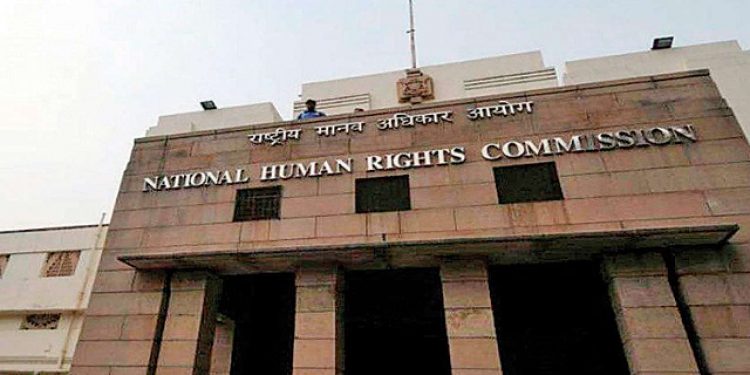Keonjhar: The National Human Rights Commission (NHRC) has instructed the Principal Secretary of the Revenue and Disaster Management Department, Government of Odisha, to present an up-to-date status report on the conversion of 589 ‘zero’ villages and 20 ‘forest’ villages.
The apex rights body has also requested district-wise details of converted revenue villages and the status of provided facilities and claims to be submitted within eight weeks, without fail.
The order was passed while monitoring a petition filed by rights activist and Supreme Court advocate Radhakanta Tripathy. The petition highlighted the lack of basic necessities and amenities for villagers (primarily from Scheduled Tribes and Scheduled Castes) living in forest villages, also known as zero villages, which are located within reserved forest areas. These villages are not listed in revenue records and, as a result, lack elected representatives or Gram Sabhas.
According to the 2011 Census, there are 4,526 forest villages across India, of which 458 are in Odisha. The petition also noted that in May 2016, the Union government acknowledged the need to convert forest villages into revenue villages due to the difficulties faced by residents. Tripathy further pointed out various issues faced by the residents of these villages, including human trafficking, man-animal conflict, distress migration, malnutrition, and the absence of healthcare and educational facilities. These issues, he argued, should be addressed as a matter of priority. Villages in Dhenkanal, Angul, Ganjam, and Nayagarh districts in Odisha are particularly affected.
Read Also: NHRC orders measures for welfare of journalists
Residents of zero villages should have access to essential services such as safe drinking water, playgrounds, all-weather roads, primary health centres (PHCs), education under the Right to Education (RTE) Act, toilets, and other basic facilities.
Tripathy also highlighted the broader issue of denial of social justice and deprivation of basic amenities in more than 4,000 forest villages across India. Odisha, with more than 420 forest villages, is a key example of this deprivation, as people in these villages lead miserable lives. Villages in other states such as Chhattisgarh, Madhya Pradesh, Jharkhand, West Bengal, Maharashtra, Telangana, Andhra Pradesh, Tamil Nadu, Kerala, Karnataka, and the Northeastern states are similarly struggling with a lack of basic amenities, welfare schemes, and are further affected by left-wing extremism (LWE) and ineffective constitutional safeguards.
In response to the gravity of the issue, the NHRC 13 August last year directed the Secretary of the Ministry of Rural Development, the Secretary of the Ministry of Forests, and the state Chief Secretary to address these serious concerns and ensure necessary action. They were instructed to submit their action-taken reports (ATRs) to the NHRC within eight weeks.
Despite these directions, the state government has submitted a series of communications admitting that proposals for conversion are pending at various levels. It is concerning that, despite specific laws and directives from the State Ministry, the Secretary of the Board of Revenue, Odisha, the Director of Land Records, Surveys and Consolidation, Odisha, and all District Collectors have failed to take prompt action to complete the conversion process within the stipulated time. Nearly nine years after guidelines were issued for the conversion of villages, the actual status of conversion remains unclear, as observed by the NHRC.
PNN






































